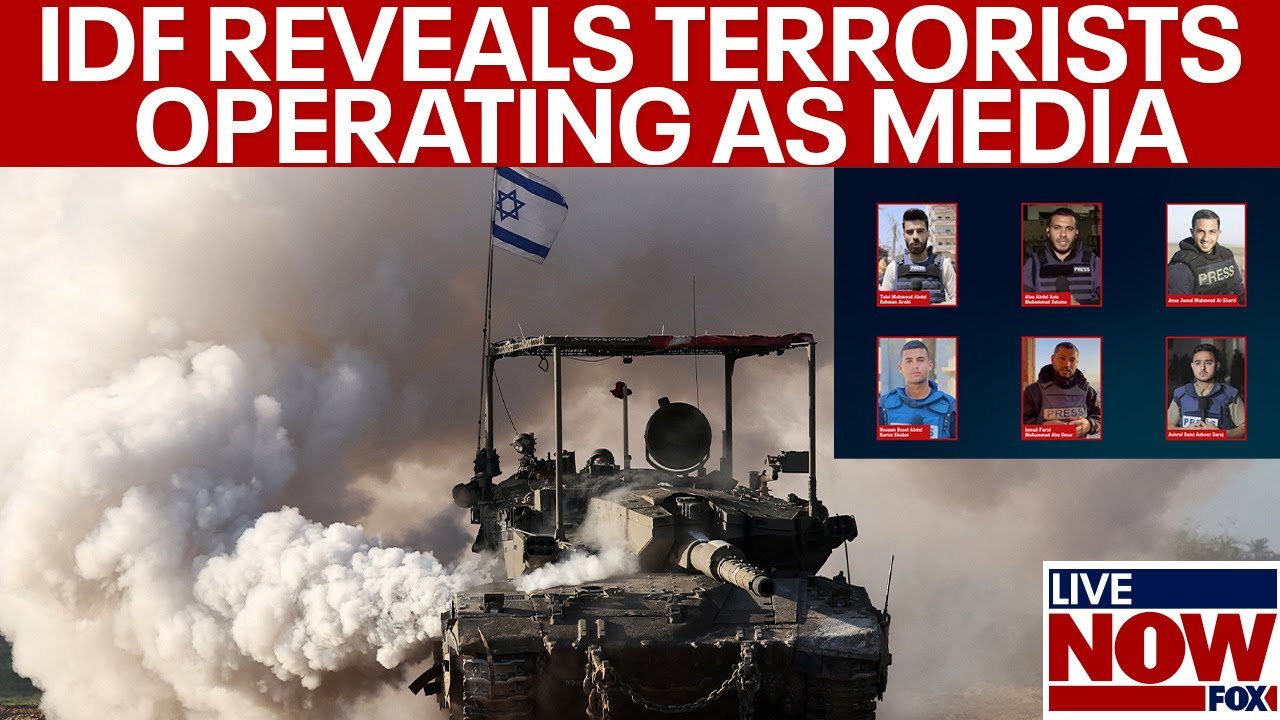- Home
- World News
- Israel Defense Forces Unveil Alleged Hamas Links Among Al Jazeera Reporters | LiveNOW from FOX

Israel Defense Forces Unveil Alleged Hamas Links Among Al Jazeera Reporters | LiveNOW from FOX
The ongoing Israel-Hamas conflict has seen numerous twists and turns, but a recent revelation by the Israel Defense Forces (IDF) has raised eyebrows. The IDF has accused certain Al Jazeera journalists of being linked to Hamas, the militant group that controls Gaza.
This accusation, if substantiated, could have profound implications for the credibility of media reporting in conflict zones and the role of journalists in war. The Allegations According to the IDF, some Al Jazeera reporters have been allegedly working in coordination with Hamas, providing them with sensitive information and even aiding in strategic operations.
The claim suggests that these individuals, under the guise of journalistic neutrality, were allegedly embedded with Hamas and had direct ties to its leadership. The IDF has not publicly disclosed all the evidence supporting these allegations, but officials indicate that they have intelligence reports and surveillance data backing their claims.
Al Jazeera’s Response Al Jazeera, a Qatar-based news network with a wide viewership across the Middle East and internationally, has strongly denied the accusations. In a public statement, the network condemned the IDF’s allegations, asserting that its journalists adhere to the highest standards of professionalism and ethical journalism. Al Jazeera has further argued that its reporters are operating under extremely difficult circumstances in Gaza, covering a volatile and dangerous situation. The network insists that targeting its journalists is an attempt to undermine independent media coverage of the Israel-Gaza conflict.
Al Jazeera also stated that it would continue its reporting from Gaza, despite the accusations and the risks its journalists face. ### Broader Implications for Press Freedom This incident has reignited the debate over press freedom and the role of journalists in conflict zones. Media outlets often face scrutiny and accusations of bias when reporting from war-torn regions. The Israel-Hamas conflict is especially charged, with both sides frequently accusing the other of manipulating media narratives. If the IDF’s accusations are proven, it would raise serious questions about how media organizations vet their reporters and what kind of relationships they might develop with groups like Hamas. Such a scenario could further polarize audiences and undermine trust in international journalism, particularly in a region where media coverage is often viewed through political lenses. On the other hand, targeting journalists—if the allegations are unsubstantiated—would also be deeply troubling, as it would compromise the ability of media to report independently from conflict zones. Human rights organizations and media watchdogs have voiced concerns that such accusations might deter other journalists from reporting on the ground or lead to increased hostility toward reporters in dangerous regions.
The Role of Media in War Reporting In a conflict as complex and emotionally charged as the Israel-Hamas war, the role of the media is crucial. Journalists provide real-time updates, interviews, and analysis that shape the global understanding of the situation. Al Jazeera has long been one of the most prominent news outlets covering the Israeli-Palestinian conflict, offering perspectives that may differ from Western media narratives. For many in the Arab world and beyond, Al Jazeera is a trusted source of information. However, in wartime, the fine line between journalism and propaganda becomes increasingly blurred, and both sides of the conflict accuse the other of misrepresenting facts or using the media to sway public opinion.
Conclusion
As the Israel-Hamas war rages on, the IDF’s allegations against Al Jazeera reporters introduce another layer of complexity to an already difficult situation. Whether these claims are ultimately proven or disproven, they highlight the precarious role of journalists in conflict zones and the challenges they face in maintaining credibility and neutrality. In the meantime, the international community will be closely watching how these accusations unfold and what impact they might have on the future of war reporting in the Middle East.